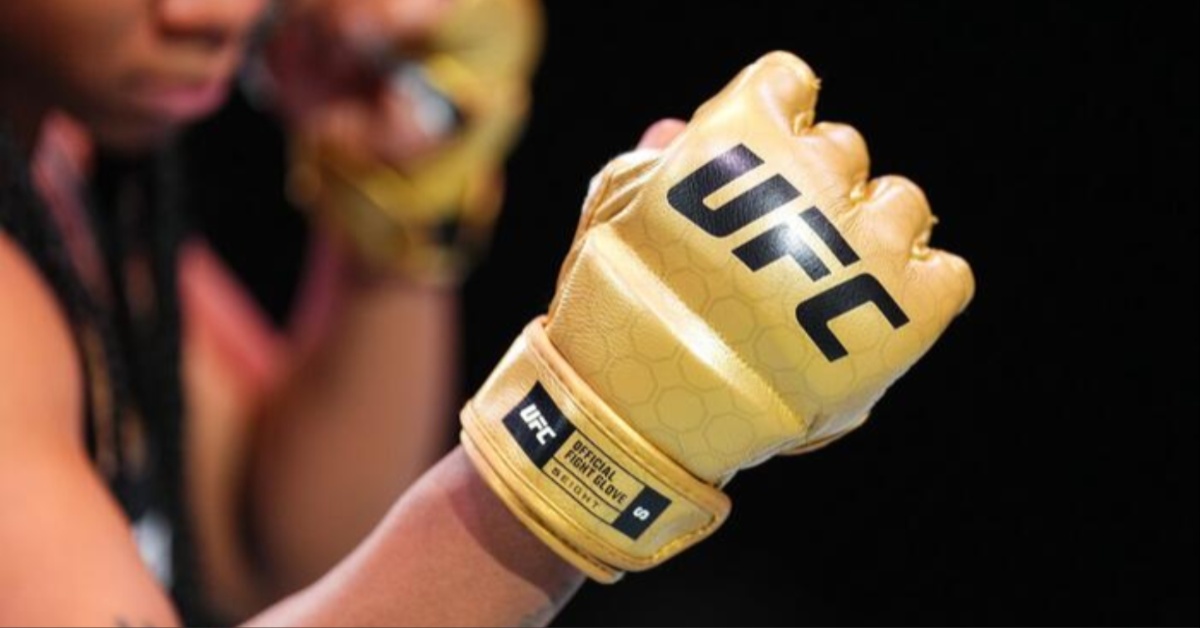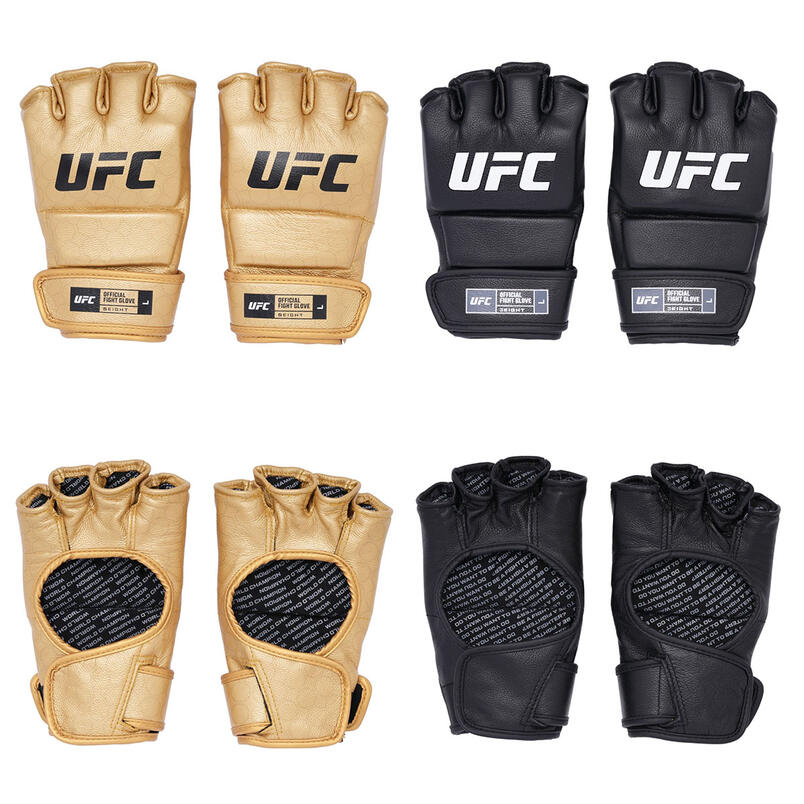
Here’s a story that you have probably seen play out countless times before: A fighter gets accidentally poked in the eye. Oops! The referee warns his opponent to be careful as if they had no clue their fingers could inflict such damage to one of someone’s five senses. The match resumes, with one fighter still trying to blink away the pain caused by the incidental blow. But then moments later, it happens again.
Eye pokes are a common occurrence on MMA cards. Along with the usual moves like guillotine chokes, armbars, calf kicks and double leg takedowns, a thumb or middle finger jabbing into an opponent’s eye is something that viewers of the sport are accustomed to seeing.
For a long time, the frequency of eye pokes has been considered a flaw of the UFC glove. Compared to the gloves of Pride FC, for example, where fingers are slightly bent so that they cannot stick outward at an opponent as easily, UFC’s gives their fighters a lot more freedom. Pundit Joe Rogan loves the gloves that Trevor Wittman designed, saying they would be a suitable replacement for the ones used by the UFC. The years-long plea from viewers and pundits for UFC’s gloves to get changed was finally answered recently, although the jury is out on if the change will stop one of the biggest glove-related qualms.
A New Glove Appears, but will the issue of eye pokes be fully resolved?

When the promotion revealed a new glove earlier this month, the promotion made a big deal out of it. They touted how it would protect a fighter’s hands more and include a futuristic microchip that would track who the gloves belong to (think Apple’s AirTag, but for face-punching devices). But there was an immediate question people had that wasn’t really answered too well: Will the gloves reduce eye pokes?
The answer? Well, maybe, but no promises. In this piece by MMA Fighting’s José Youngs and Alexander K. Lee, the question was posed to UFC Performance Institute Senior Vice President Duncan French. He noted that the test run of the gloves in Dana White’s Contender Series saw fewer eye pokes than usual. Is there a direct correlation between the gloves and the number of eye pokes? He wasn’t willing to say just yet.
“We hope that that is a consequence of a redesign and the nature of the glove, but we’re all watching moving forward to ensure that this is going to be the case,” he said.
Could be a fix, or not. We’ll have to wait and see when equipment debuts at UFC 303.
If we tune in for UFC 302 and Islam Makhachev, Dustin Poirier, or somebody else on the card suffers pokes to their eye or eyes, what will we do? Design another glove? Good luck convincing the UFC, who just revealed a new glove for the first time in who knows how long. But what if I told you there are other fixes? As Kevin Hart said in his straight-to-Netflix movie recently: “If you can’t hack the tech, you gotta hack the people.”
Gloves Aside, How Can We Reduce Eye Pokes?
Fouls in MMA are, to an extent, legal. As long as you make a mistake and it looks believably unintentional, you are let off with a warning. The second time around, you might get a strong warning. That’s different from a soft warning because, well, it’s strong. There’s not much that actually stops fouls from happening in these instances. Apart from the possibility that a mistake could be so grand that it causes a fight to end in a no contest, is there really an reason to avoid making such errors?
It is the referee’s discretion to determine which fouls constitute a point deduction. “Only a referee can assess a foul,” the Unified Rules of Mixed Martial Arts say. But quite frankly, the warning system currently in place isn’t strict enough. A change has to be made. The issue is, determining what type of change would be positive really isn’t easy.
Where Do You Draw The Line?
If you have initial pushback against the idea of making the rules around fouls stricter, that’s understandable. While most athletes in other sports are punished for mistakes no matter their true intent (think fouls in basketball, penalties in football), the rigid scoring of MMA means that any sort of punishment would be quite strong.
There are few comparisons to the type of punishment that getting a point knocked off a round is like. Trip someone in hockey? Your team gets a disadvantage for just two minutes, which could be a forgettable moment in the game by the end. Commit a minor foul in a basketball game? Your opponent gets to add one or two points to their score total which could surpass 100 by the end. However, in MMA, your chances of winning become significantly slimmer if a point is deducted.
It is quite honestly hard to draw the line. As it stands right now, if every foul resulted in a point deduction, we’d be seeing a lot of results go very differently. Does that mean that taking away one point due to a singular foul is too strict? Maybe. But on the other hand, how much is it really a foul if there’s no punishment attached to it? A fighter is essentially escaping scot free the first ors second time around currently. Maybe, making fouls more strict will scare fighters into being more cautious with how they move, thus causing fewer fouls to happen.
It’s hard to figure out how this change can be properly made, and I’m not going to propose a hard rule that MMA should abide by. Instead, I think this is something that people within the industry should discuss more. Fighters, trainers, referees, pundits, and more. The eye pokes discourse should not start and stop with changing the gloves.
The way it’s set up right now, there’s no incentive for fighters to be careful about what they do. While most fouls are honestly unintentional, they could also arguably be happening because making such errors are an afterthought in training and competing. With stricter rules, that could change.
An improved glove that reduces eye pokes would be big for MMA and is important for UFC to focus on. And who knows, come UFC 303 we might be seeing a new glove that actually makes significant changes. However, eye pokes cannot be completely abolished in MMA with an equipment change. With the way gloves must be designed, allowing fingers to poke out, they are inevitable. To limit the issues further, a stricter interpretation of the rules must be followed as well.